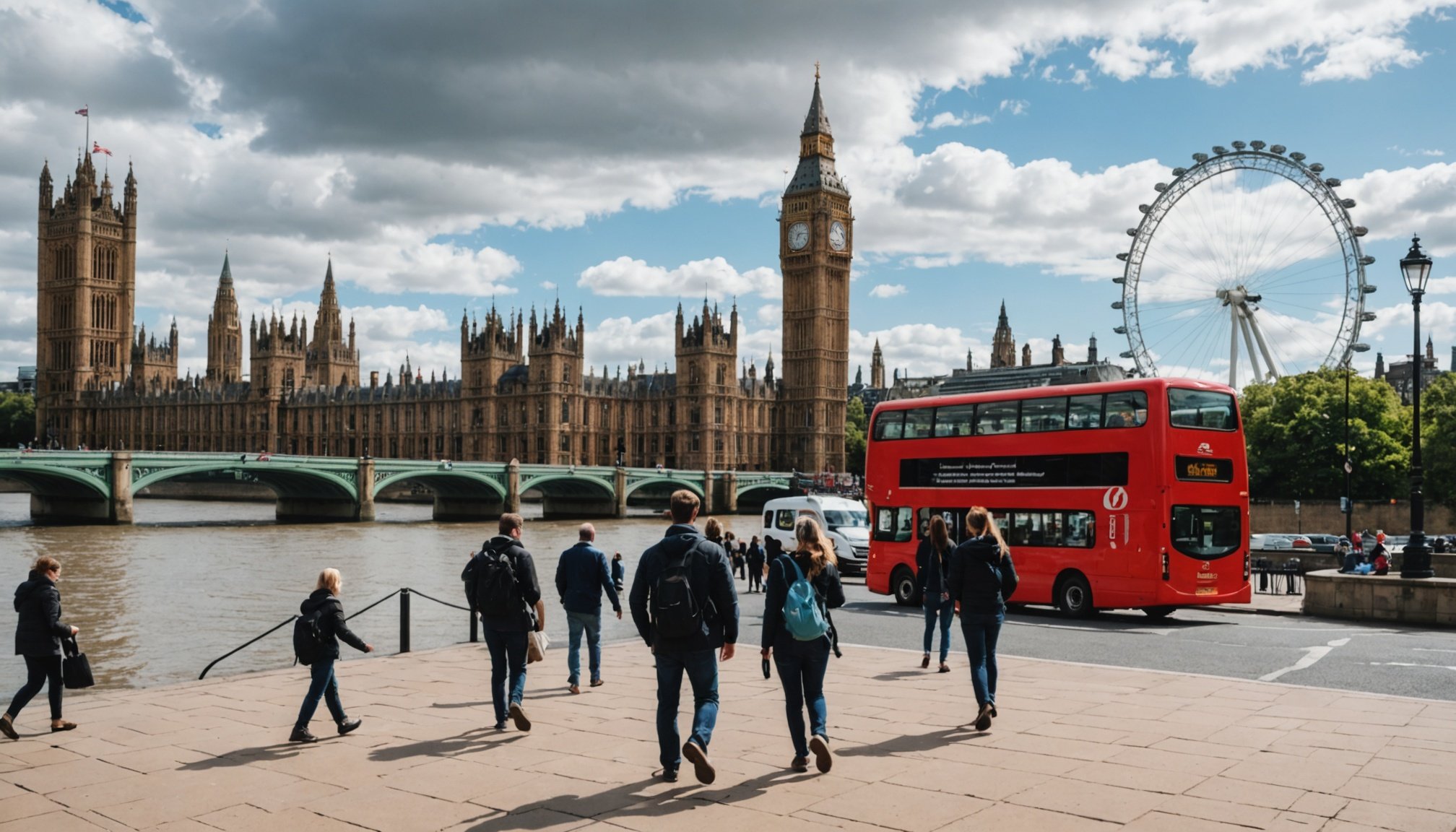Strategic Shifts in UK Tourism Post-Pandemic
The post-pandemic tourism strategies in the UK have been fundamentally shaped by evolving traveler behaviors and expectations. Visitors now prioritize safety, flexibility, and authentic experiences more than ever. UK tourism adaptation efforts focus on meeting these demands through enhanced hygiene protocols, flexible booking policies, and a stronger emphasis on local culture.
One major challenge facing UK tourism businesses since COVID-19 is managing fluctuating demand levels. International travel remains unpredictable due to varying restrictions worldwide, pushing many operators to pivot towards domestic tourism. This shift has required considerable innovation in marketing and product offerings, as UK destinations compete to attract local visitors.
Also read : How Can Eco-Tourism Benefit Local Communities in the UK?
Additionally, the tourism industry faces operational hurdles, such as labor shortages and supply chain disruptions, which affect service quality and consistency. Businesses are adopting digital tools and contactless technologies to meet these challenges efficiently.
Domestic travel demand has surged, encouraged by consumers’ renewed interest in exploring local attractions and supporting regional economies. However, the slower rebound in international arrivals means companies must balance resources carefully. This ongoing adaptation underscores the resilience and flexibility essential for recovery in the UK tourism industry today.
Also read : How Can You Experience the UK’s Hidden Historical Gems?
Government Guidance and Policy Responses
Governments have implemented targeted tourism policies to stimulate sector recovery amid ongoing COVID-19 challenges. In the UK, updated travel guidelines emphasize safety while encouraging cautious reopening. These guidelines prioritize health protocols such as mask-wearing, social distancing, and testing requirements, helping restore traveler confidence.
Financial relief schemes form a core part of government support. Grants, loans, and tax relief are available to assist tourism businesses struggling with reduced revenue due to prolonged restrictions. For example, some programs offer wage subsidies to retain staff, preserving industry expertise critical for recovery.
Additionally, coordinated efforts promote domestic tourism to offset the impact of reduced international travel. Campaigns highlight safe travel experiences and local attractions aligned with health advisories. These government tourism policies also encourage collaboration between public and private sectors, facilitating innovation and flexibility in service delivery.
Overall, UK tourism recovery hinges on continued adherence to evolving COVID-19 travel guidelines, effective financial support, and adaptive government tourism policies that respond to shifting pandemic dynamics. Stakeholders must stay informed of policy updates to navigate the complex regulatory landscape while capitalizing on emerging opportunities.
Digital Transformation Accelerating Tourism Recovery
Digital transformation is rapidly reshaping the tourism industry, driving its recovery with innovative solutions. The surge in tourism digital innovation is evident through widespread adoption of contactless travel technology. Hotels, airports, and attractions now use touch-free check-ins, mobile keys, and QR code-based menus to enhance safety and convenience. This technology not only reduces physical contact but also streamlines operations, making travel smoother and more appealing.
Meanwhile, online booking trends show a strong preference for flexible, user-friendly platforms. Travelers increasingly book entire trips through apps offering real-time availability and easy cancellations. This shift reflects a growing demand for seamless, adaptable travel experiences.
Furthermore, the growth of virtual and hybrid tourism experiences offers new ways to engage with destinations remotely or through augmented reality. These innovations allow travelers to explore culture and attractions from home, serving both education and marketing purposes.
Tourism businesses also leverage data analytics and artificial intelligence to optimize staffing, forecast demand, and personalize offerings. By harnessing these tools, operators improve efficiency and customer satisfaction, accelerating recovery. The integration of tourism digital innovation across various sectors paves the way for a resilient, future-ready industry.
Sustainability as a Core Adaptation Strategy
Special focus on eco-conscious travel advancements
Sustainability is no longer a fringe consideration; it’s now central to eco-friendly travel UK and global tourism trends. As destinations recover post-pandemic, integrating sustainable tourism practices into their core models ensures long-term viability and enhances visitor experiences.
A key approach involves embracing regenerative tourism, which goes beyond just minimizing harm by actively restoring and improving natural environments. Destinations adopting this method prioritize environmental stewardship, community engagement, and resource conservation. For example, green certifications like Green Tourism or ISO 14001 serve as benchmarks, encouraging businesses to adhere to rigorous ecological standards.
In the UK, several destinations have become pioneers in this shift. National parks and coastal areas are implementing policies to reduce carbon footprints and improve biodiversity. These efforts not only protect natural assets but also appeal to travelers eager to support responsible tourism. By aligning economic recovery with ecological integrity, these regions prove that sustainability can drive growth while preserving the environment.
Ultimately, embedding sustainable tourism practices allows destinations to remain competitive in a marketplace increasingly shaped by conscious consumers seeking meaningful and eco-conscious travel experiences.
Industry Perspectives and Actionable Insights
Exploring expert views and practical strategies for tourism resilience
Tourism expert opinions consistently highlight the vital need for adaptability amid evolving market conditions. Recent statistics reveal a growing emphasis on sustainable tourism practices within the UK, a trend underscored by several successful case studies. For instance, some UK tourism businesses have thrived by integrating innovative digital tools, enhancing visitor experiences while optimizing operational efficiency.
One standout example involves a coastal heritage site that embraced augmented reality to attract a broader audience, demonstrating how technology can revitalize interest. This approach aligns with tourism adaptation recommendations focused on leveraging technology alongside preserving local character. Experts assert that fostering community engagement enhances authenticity, a key driver for modern travelers.
For business leaders, recommended actions include investing in flexible infrastructure, diversifying offerings, and prioritizing environmental stewardship. Policymakers are advised to support these efforts through incentives and streamlined regulations that facilitate innovation.
By examining UK tourism case studies, it’s clear that adaptability, supported by expert insights, forms the cornerstone of sustainable success. Embracing these lessons empowers stakeholders to navigate uncertainties effectively while enhancing tourist satisfaction and long-term viability.






